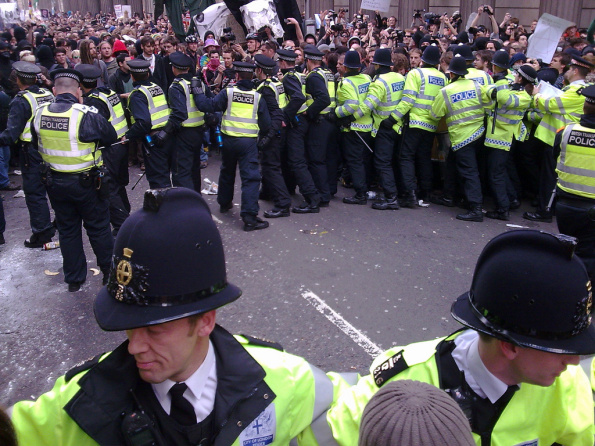
I asked someone else I met in a temporary political organising space about the unsustainability of political organising that I had noticed. I won’t comment on much but while reading it I was struck by the fact that there seems to be no pool of knowledge for long term organising that we can trust. Political organisers these days are often young and starting from scratch and suspicious of older authoritarian leftist organisations.
So I wonder if there is useful knowledge on organising that we could draw from somewhere, perhaps from outside the usual political circles or in other countries? I think its important that we draw knowledge from successes, rather than copying previous movements that may have been romanticised but that didn’t succeed in their aims.
1. A lot of people seem to burn out after being involved in political organising for a relatively short time. What do you think it is it about the way we organise that makes this happen?
I think there are a number of reasons for this, firstly, thinking in a broad sense:
a) Sometimes activism can be very exciting, when things move up a gear from more conventional and subdued lobbying (letter-writing etc). So you might become wrapped up in the excitement and corresponding social scene, then it could hit you one day that you’ve got tired and maybe neglected other aspects of your life.
b) There seems to be a certain point of political awareness when you notice that every aspect of your life is in some way political and requires thought. Everywhere you look there are causes that demand your attention and suddenly the world’s problems can seem so vast, interconnected and complex that you may feel overwhelmed or exhausted by trying to decipher it all. (There can be a strong emphasis on personal lifestyle choices, which perhaps adds to the all-encompassing nature of ‘activism’).
To come up with other ideas I would need to clarify the ‘we’ in the question. There seem to be some marked differences between student organising, trade union organising, radical-greens, party politics etc. But I have been close to lots of people who have been involved in almost all of these types of activism at the same time, so I guess we’re talking about radical anti-capitalists, working towards social, environmental and economic justice, locally and internationally, by whatever means necessary.
2. I’ve been thinking recently about how so much energy goes into quite temporary projects and convergences, while little goes into long term organisations. Do you think we need lasting organisations and if so, how can we get around people’s fear of bureaucratisation?
Perhaps a lot of energy does go into long-term projects but it is less noticeable? I’m thinking about networks of housing cooperatives, radical media, food growing projects… etc. And there are more visible networks with a long term view, eg trade unions, radical parties, radical NGO’s eg Greenpeace,…But I guess you’re thinking about groups that are more radical than that?
In which case, I agree, there seems to be something missing at the moment in the UK.
There have been attempts that have achieved some success, eg The Social Centre Network and Indymedia.
Maybe more bureaucratic projects are less exciting and can require more dedication than people can afford to give (due to economic circumstances perhaps). Perhaps people don’t feel empowered or knowledgeable enough to set things up. Before I started setting up a Housing Co-op I had no experience of buying a house and it was a daunting prospect – maybe it takes a rare sort of optimism to battle through bureaucracy?
Perhaps there are significant physical/economic constraints (e.g. it’s hard to find affordable/accessible meeting rooms). The digital side of organising always seems to cause some headaches as well. The argument of volunteers vs paid workers often causes divisions. Maybe short-term campaigns have enough spark to just deal with these things in a way that is fine at the time but not quite sustainable.

Isn’t the problem a bit more prosaic? That group’s that are against something get supporters by virtue of what they are opposing (like a new airport) but groups that are created on the basis of what they are for struggle more because that is more divisive and they is confusion/disagreement about what anti-status quo groups should be in favour of?
Good point. I think that’s definitely part of the picture. I think it’s partly a result of an individualistic culture where we each think we have a ‘right’ to pursue our own ideas, free of compromise. The sad thing is that more radical groups often think they are creating an alternative culture amongst themselves but they very seldom challenge this ‘right’ or try to work out what a positive form of compromise means.
Indeed it seems ironic that the left is so dogmatic and divided, at least at the level of long-term ‘for’ organisations as opposed to short-term ‘against’ organisations. Perhaps some of the frustration and anger at our own failures to achieve major and sustainable successes gets directed towards one another, as instead of the blame being placed on the extremely effective dominance of the prevailing system, it gets directed at minor policies or differences amongst ourselves, as if they’re to blame for our ineffectiveness.
I concur. Seems to me that the competition (capitalism) is a fundementally dis-organised thing. It doesn’t actually require much ideological (or other) agreement for the people involved in it to co-operate. The players can behave in a relatively self interested way, or form small groups and still produce a relatively dominate world system (of course there are larger structures – but they don’t require everyone to cooperate to function). Infact, whole capitalist entities can just collapse and disappear with relatively little distruption and only minimal co-operation from small parts of government (e.g. the money printing presses).
So in comparison, I don’t really see how the left could appear anything other than fractious and disorganised.
Are you saying that culturally speaking we don’t know how to organise?
I’m not sure our current system is so competitive as people make out. We cooperate in lots of ways. A city of 10 million people who more or less get along with each other in a functioning way requires a lot of cooperation.
Right, I’m not trying to suggest capitalism is competative, it certainly requires large and sophistiocated co-operation and long term planning – more that it doesn’t require that much “global” agreement to function, and it is resislient to failures and non-cooperation (in fact even to large scale resistance) in ways which some other systems might not be.
I think a reason for this is the large degree of coercion involved; particularly in the way that it controls commons. For one example, in the UK its pretty difficult to get fuel without paying for it – and this /forces/ people to engage at least somewhat with capitalism.
But in, say, political organising we are pretty much relying on willing co-operation since the kind of coercive techniques used by capitalism are one if the main things being resisted.
It does also seem to me that the monitisation of social relations, the privatisation of commons and the ownership/liability separation involved in capitalism has acted to substantially degrade some forms of organising (how many music shows have been stopped by the requirment to pay for security?). It certainly occurs to me that the dominant (non-state but public) organising system I was exposed to growing up was in the capitalist mode – for example, the local village fete had a definite “fund raising” element to it – some (most?) of the local sports clubs had the mode of “paying for lessons”, my primary school annual fair was a bunch of stores and attractions selling games and knick-knacks … etc…